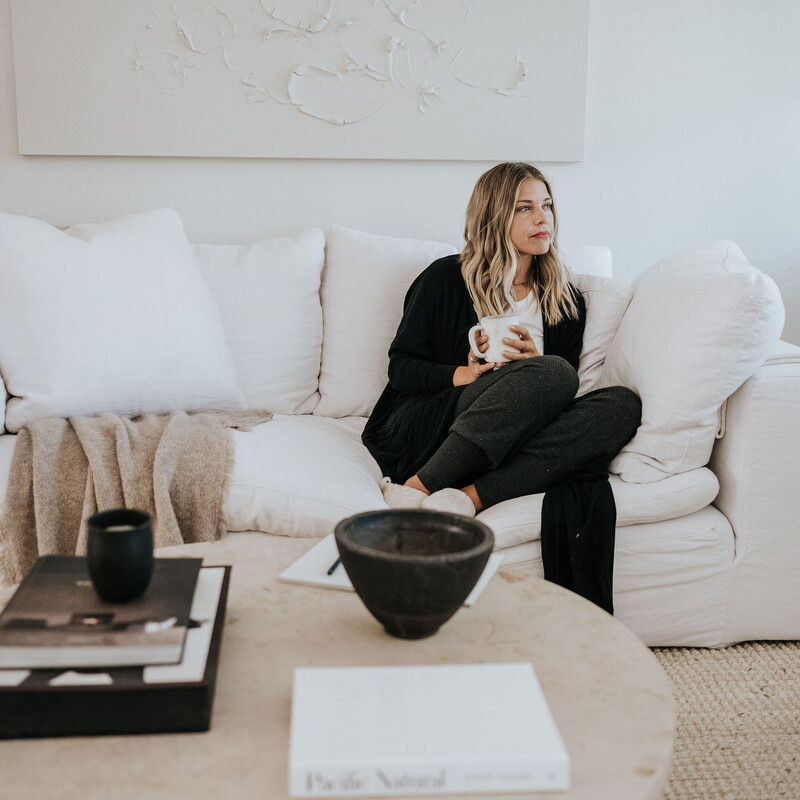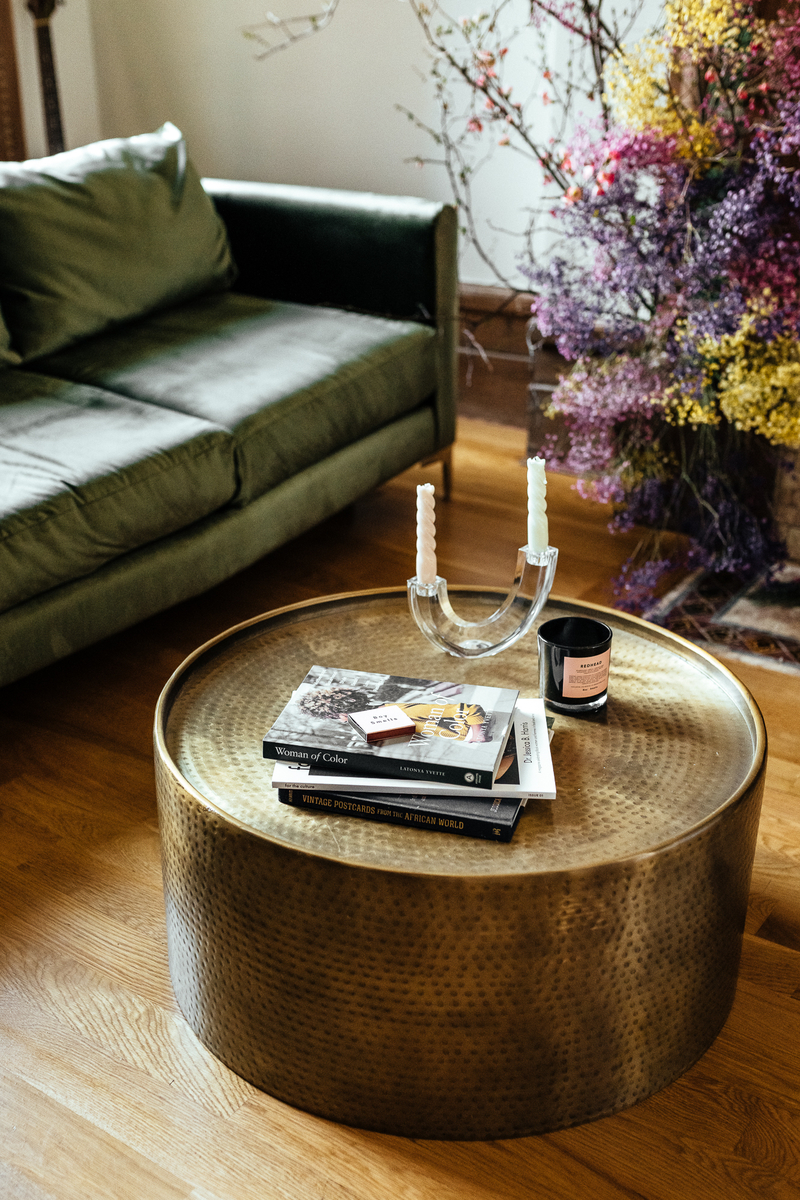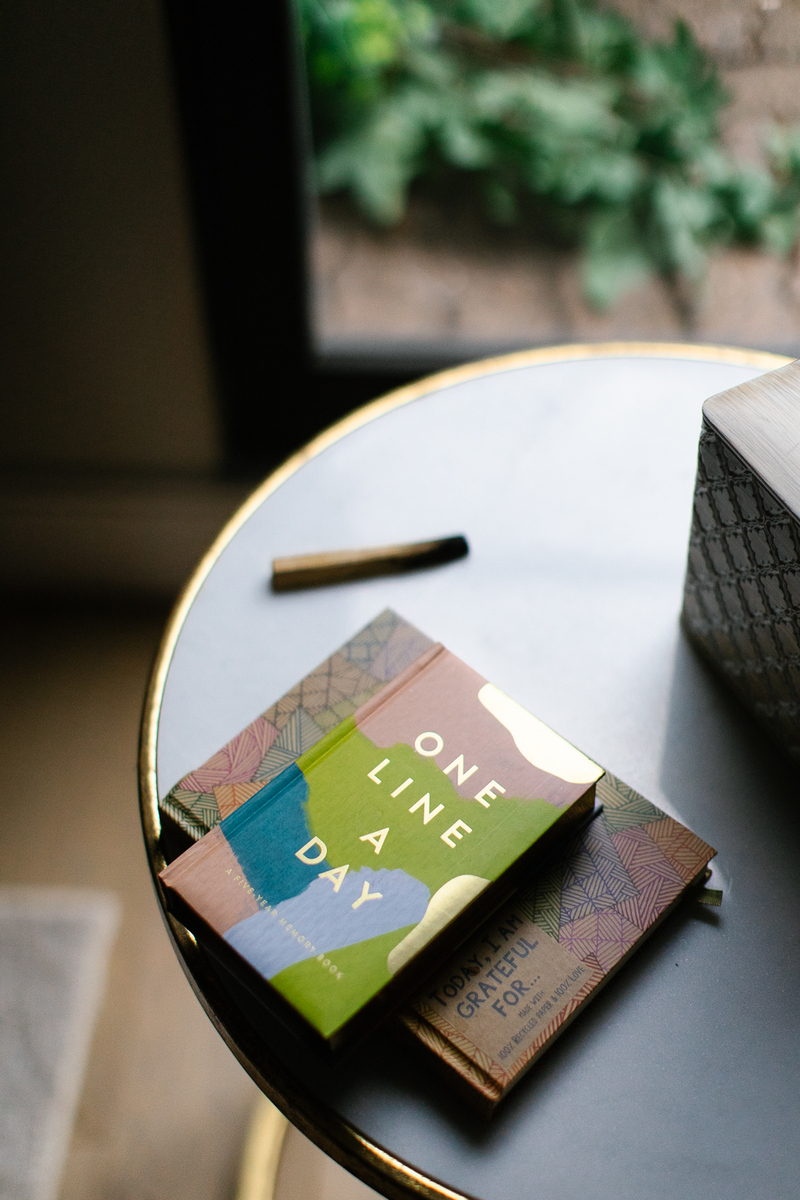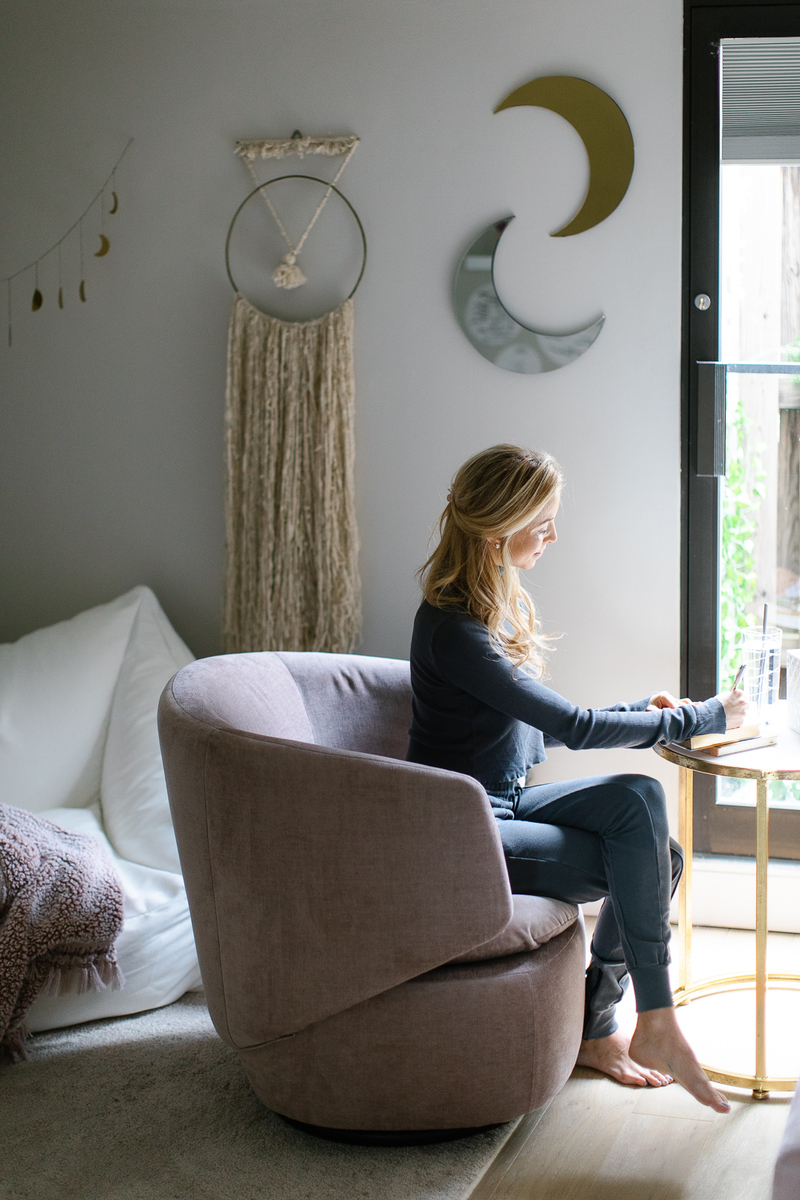As a writer, I spend a lot of time in my head. I’m always wracking my brain for the right words that seamlessly weave my thoughts together, and experience turns to observation turns to documentation in the blink of an eye. With this way of being guiding not only my professional but personal life, I’ve convinced myself that by simply thinking through things, I can find a solution and fix any problem, and oftentimes, I’ve done it alone. So learning how to find a therapist? Never been on my radar—that is, until now.
Like many, there’s a special place in my subconscious that holds trauma and pain—and after a few years of… chaos, a bit of that has made its way to the surface. And while keeping routines, moving my body, and eating emotionally-supportive foods have all certainly worked their magic, I’ve always believed in the power of reflection and seeking support. So naturally, it became time to figure out how to find a therapist. Particularly one who was a good, if not the perfect fit.
Feature image by Teal Thomsen.

Image by Michelle Nash
Of course, with global levels of anxiety and depression seeing a sharp rise since 2020 (the WHO reported a 25% increase in the prevalence of both conditions worldwide in the first year of the pandemic), it’s no wonder that therapists and other mental health professionals are in high demand. Whether you’re coming back to therapy after a hiatus or diving in deep for the very first time, navigating the process of how to find a therapist can be a daunting task. And of course, the vulnerability of pouring your heart out to a stranger can be an immense source of fear or discomfort.
If you’re looking to start working with a therapist or are unsure of where to begin, know that you’re in good hands. I spoke with Kathryn Lee, a New York City-based psychotherapist and mental health contributor. Kathryn shared everything from how to begin your search for a therapist and navigating a consultation call, to potential red flags that might indicate a bad fit. So dive in and discover your guide to how to find a therapist, and let the healing journey begin.
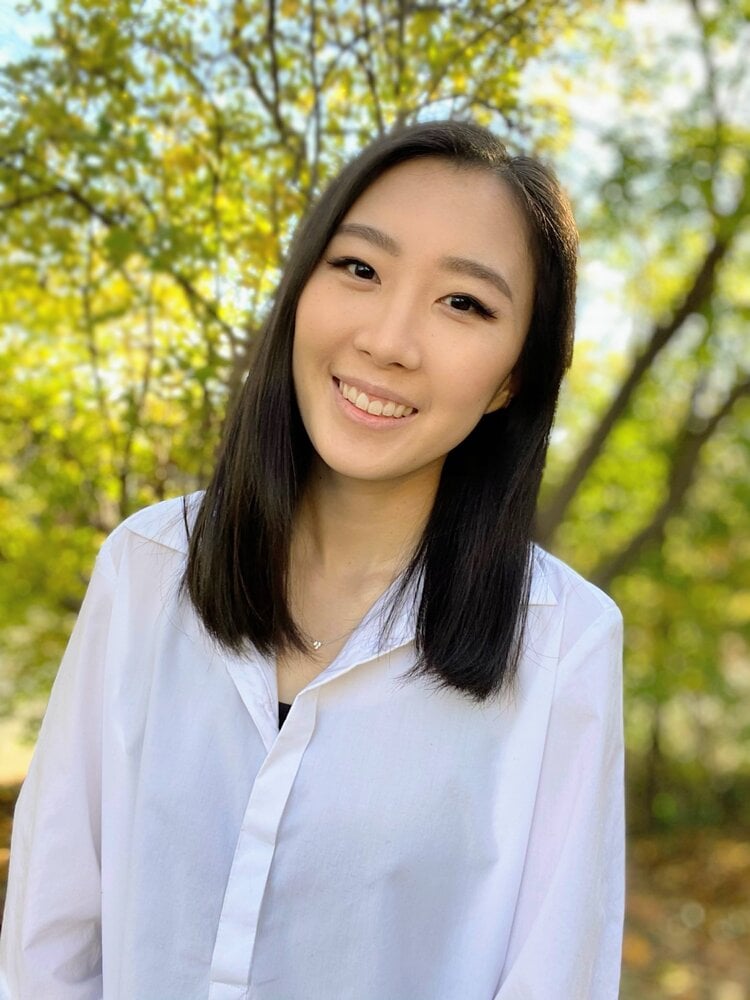
Kathryn Lee is a New York City-based mental health counselor whose work aims to support all people by creating an empathetic, compassionate, and nonjudgmental environment. Her client-centered approach aims to tailor the therapeutic process to each individual, working collaboratively with clients to ensure their perspectives are supported and all their needs are met.
If someone is wondering how to find a therapist, where should they start?
If you’re new to the world of therapy, learning how to find a therapist can require a bit of self-reflection and time spent getting clear on your expectations. “The first step to consider when seeking therapy is identifying what you want to achieve,” says Lee. “While you do not need to have all the details articulated before your first session, it can be helpful to have an idea of your ‘why.'”
Perhaps you’ve heard of this idea before. It’s commonly written about in fitness, nutrition, and other areas of wellness, and it definitely applies to the process of pursuing therapy. As opposed to thinking of treatment as something you’re supposed to do, having an understanding of why you’d like to take this route can help create a more personalized experience, and ultimately help you get more from it. “By doing this,” Lee adds, “you may begin to conceptualize what kind of therapist you would like to work with and what kind of approach you may need and want in therapy.”
Before working with a therapist, how should someone prepare to set themselves up for success?
If you’re feeling lost in your search for how to find a therapist, you’re not alone. “Looking for a therapist in and of itself can feel like an overwhelming, daunting process,” says Lee. “I like to encourage folks to think about looking for a therapist as a process similar to dating. Like dating, it will have its ups and downs.”
She recommends scheduling a few phone consultations before committing to working with a therapist. “During these phone consultations, be open, be curious, and ask questions!” (As for the specific questions to ask, rest assured, we have you covered below.)
Be prepared with ideas of how you’d like to structure the following: session cadence (how often you want to meet with your therapist), their availability, whether or not they accept insurance, and their session costs.
Lee adds a key consideration to keep in mind: “You are potentially inviting this person into some of your most vulnerable moments; therapy is a safe and sacred space.”
Consider the following along your path for how to find a therapist who will support your individual needs:
- Do you feel safe and seen when talking to this clinician?
- Do you feel a connection that’s grounded in trust, compassion, and respect?
- Can you see yourself collaborating with this clinician?
Images by Michelle Nash
What resources would you recommend someone use when searching for a therapist?
While finding a therapist who fits your style and can provide you with the treatment you’re looking for can be difficult, the internet is here to help. Lee recommends diving into the following online mental health directories:
Using these resources, Lee notes that you can “search for a provider based on insurance, geographic location, specialties, and identities.” She adds that reaching out to your insurance provider directly can also be a helpful route, or you can ask for referrals from your primary care physician or other medical providers.
When it comes to a consultation call, what questions can help determine if it’s a good fit?
Many therapists offer free consultation calls before your first appointment. This can be a great time to understand their approach better and get a clearer idea of what it would be like to work together. However, Lee says to “keep in mind that you most likely will not be able to know for sure that it’s a good fit until you are sitting with them in session. Research has shown that the client-therapist relationship is the biggest indicator in achieving treatment goals.”
That being said, below are a few questions Lee recommends asking to help you make the most of your consultation call.
- What is your theoretical orientation and approach?
- What is your general philosophy of therapy?
- Have you worked with clients who have had similar experiences as my own?
- How long are the sessions? How often will we meet?
- What does a typical session look like?
- Have you been in therapy yourself?
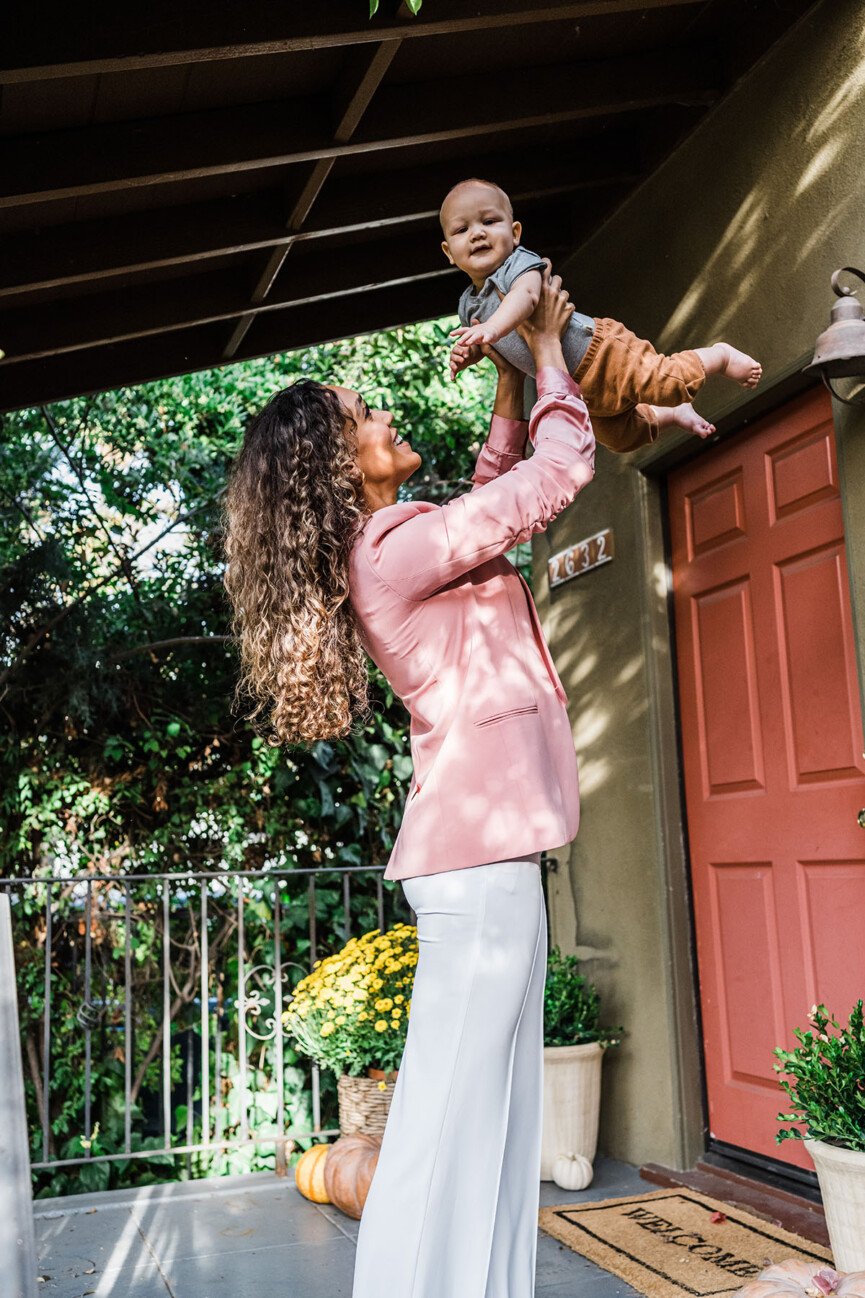
Image by Teal Thomsen
What are cost-friendly alternatives to traditional therapeutic treatment?
Whether you have insurance or not, therapy can still be cost-prohibitive. Fortunately, there are online and virtual platforms changing the game when it comes to making therapy more accessible and affordable for all. Lee recommends the following resources and tips for pursuing a path that fits your budget.
- Betterhelp By filling out a questionnaire, you’ll be matched with one of Betterhelp’s 24,000 licensed therapists. From there, you can message your therapist at any time through the service’s website or app. Plans start at $40 per week.
- Talkspace For $65 per week, this subscription-based service includes weekly live sessions and messaging support.
- Open Path Collective With a lifetime membership ($59), you can see any of the collective’s in-network providers for in-office and online psychotherapy sessions for between $30 and $60 for individuals.
Images by Kate Thompson
What are potential red flags to look out for?
As with most things in life, when it comes to finding a therapist, Lee encourages listening to your gut. “There are many great therapists out there! While there might not be anything particularly ‘wrong’ with a therapist, they may still not be the right fit for you.”
These are a few red flags you can keep an eye out for to help you decide if you want to pursue treatment with a provider:
- If the therapist does not specialize in what you are looking for.
- If you feel that you do not have the therapist’s undivided attention.
- If you feel that the therapist does not respect your boundaries.
- If you feel judged in session.
- If you have not articulated initial goals for treatment.
- If a therapist has never been to therapy before.
How long should someone expect to see a therapist before determining whether or not they should continue treatment?
“In my own clinical work,” Lee shares, “I like to regularly check in with my clients when we first begin working together to gauge how they’re feeling about therapy in general.” She adds that if, after a few sessions, you feel that it might not be a great fit, “they can help you find a clinician who is a better fit for you based on what they’ve learned thus far.”
It’s important to remember too, that “breaking up” with your therapist is perfectly OK—and can even be a significant step in your journey! “We understand that we are not the right fit for everyone,” Lee states. “However, we absolutely want folks to receive the best care they can.” Take heart, the right therapist is out there.

